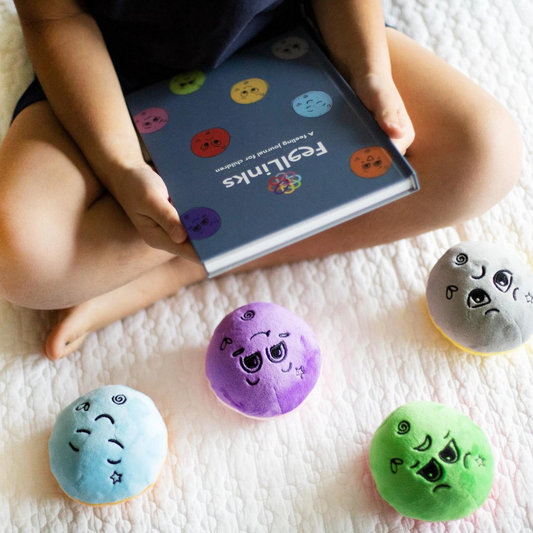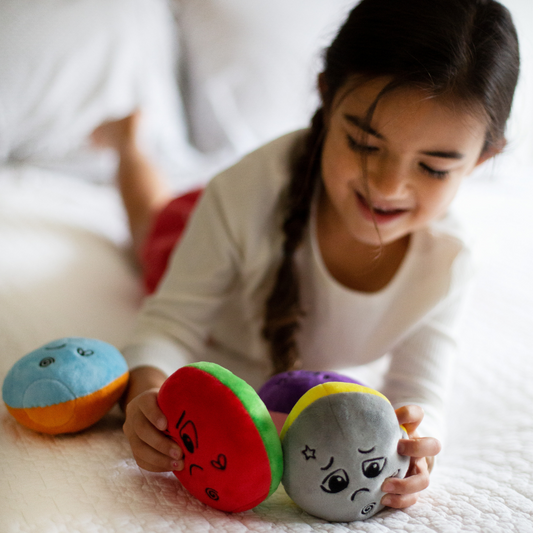Back-To-School Routines
Share

Many of us have transitioned from summertime fun to back-to-school life - if not yet, you are headed there very soon!
In our home, we are back in our school routines- wake times, lunches to make, breakfast to eat, busses to catch, homework to complete, activities to attend, family dinners to eat, chores to complete, and stricter bed times.
While this might sound like too much structure to some of you, daily routines actually bring our children a sense of safety, security and a greater sense of calm. The predictability of routines help us set expectations for our children and lead to better cooperation and less behavioral problems. Children can learn to follow routines from a very young age.
Here is some advice on setting up routines in your home:
- Busy times: Plan routines for the times in your day that are especially busy. For example, if you are getting ready for work in the morning, while children are getting ready for school, create a routine around what is expected for everyone in your family to do.
- Downtime: Plan downtime in your daily routines. We all need it. Maybe after school is as great time for your child to decompress and have alone time after having a busy day of learning.
- Limits: Set limits in routines. For example, in our home, we have "electronics time" before dinner for 45 minutes. However, on the days we have activities, our electronics time is different because there is not as much time for it.
- Reasoning: Discuss the reasons for the routines you have set up. For example, "we eat an early dinner at 5:00 on Tuesdays because of softball. After softball we will eat a snack before getting ready for bed."
So, now that you have set up household routines, how do you get children to follow them?
Here are some ways to help keep your family on track with routines:
- Visuals: Post routines somewhere visible. This will help everyone with accountability. In fact, we post them in more than one spot in our home.
- Alarms: Set alarms. We have Echo Dots in every room in our home and we use them for timers for screen time, wake times, timing reading minutes, and more.
- Teach: You will need to teach (and re-teach) your children what is expected of them in the given routines. Whether it's getting ready for bed, getting out the door for an activity, or completing a household chore, you will need to model, teach, and re-teach. For example, if you want your child to be ready to head to baseball (a real life example from our household), they will need every step explicitly taught: getting dressed and what exactly that entails, filling a water bottle, getting all of their gear, putting it in the car - this routine has many steps and will take modeling, teaching and re-teaching! Once they have it down, it will be a great act of responsibility and a big help to you. *Again, using visuals can help kids follow through will all of the steps.
- Praise: Let your child know when you notice them following the routines and expectations. Praise them when they are trying their best and when they have done what is expected! "You did a great job remembering everything you needed to do to leave for baseball."
Routines are a great way to bring calm and lessen behavior problems due to unknown expectations. However, we want to remember that flexibility is also very important. If you don't get that 5:00 dinner in on a Tuesday before softball, and instead you eat dinner afterwards, you want your child to be flexible with that. Throwing in unknowns and changes is okay - routines are not meant to be rigid. Flexibility and change are a part of life and definitely something we want our children to be alright with.
Remember to check in often with your child. Ask your child how they are feeling - About school? Activities? Friends? Listen. Validate. Their feelings might be all over the place - positive, difficult, and mixed - your supportive ear, love and care will give them safety - and that is the most important thing you can do for your child. FeelLinks is always here for you! Check out our shop for resources to help engage children in understanding and communicating feelings and blog posts supporting you with relevant topics.
Wishing you a great school year ahead!
With gratitude,
Marcelle





